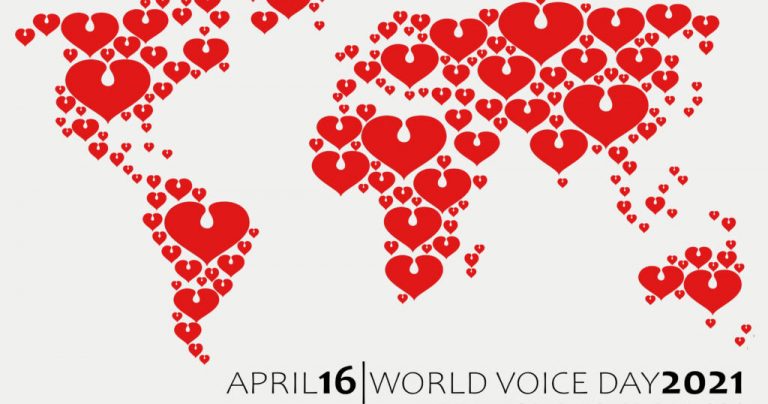It’s World Voice Day this month, a chance for singing teachers and other voice specialists to spread the word about vocal care.
World Voice Day 2021 is an opportunity to highlight the importance of the voice as a communication tool and raise awareness about vocal health.
It’s a message pertinent to all singers (a surprising number of whom lack an understanding of the significance of vocal health) and the general public.
Vocal care isn’t just for singers
Most of the general population think of voice use in the context of professional singing; they picture a diva belting it out on stage and don’t see the relevance of vocal care to their daily lives.
But a considerable proportion of the working population uses their voice to do their job. Whether it’s delivering a Zoom presentation, talking to customers or caring for a patient, your voice influences your ability to “get things done”.
It also influences how you get things done. Consider the impact of a calm, precise, resonant delivery compared to a breathy, uneven one. The former generates confidence, the latter ambivalence or even distrust.
Vocal problems
Often, it’s not until someone experiences a vocal injury or an illness that impairs their ability to speak that they realise just how much they rely on their voice.
Unfortunately, due to Covid-19, an increasing number of people have reported voice use issues over the past year (the British Voice Association has some helpful advice about Covid-related voice problems here).
This leads us back to World Voice Day on 16 April, which has the theme: One World, Many Voices.
If you’d like to promote it on social media, you’ll find graphics on the World Voice Day website along with warm-up exercises and information about hoarseness.
There’s also a drop-down menu of events taking place around the world. You could participate in one of these or create your own and upload details of it onto the World Voice Day website.
Website: world-voice-day.org




